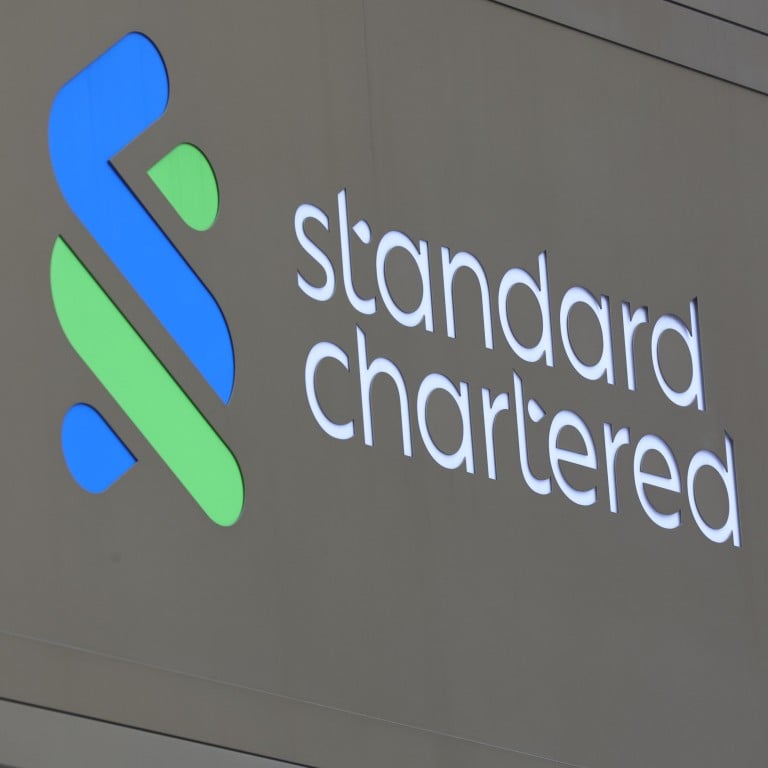
Standard Chartered’s third-quarter pre-tax profit falls by half to US$633 million on mounting bad loan provisions to China’s property sector
- London-based bank’s pre-tax profit misses analysts’ estimates of US$1.49 billion
- Standard Chartered’s net loss stood at US$35 million for the July to September quarter, against a gain of US$964 million a year earlier
The emerging-markets focused lender made a net loss of US$35 million for the July to September period, against a profit of US$964 million a year earlier.
The London-based bank, which generates much of its revenue in Asia, reported US$633 million in pre-tax profit, a decline of 54 per cent from US$1.39 billion last year, missing analysts’ estimates of US$1.49 billion polled by Bloomberg.
“We have continued to make strong progress in the third quarter against the five strategic actions outlined last year, delivering a solid set of results,” chief executive Bill Winters said in a statement to the Hong Kong stock exchange on Thursday.
“We remain highly liquid, and well capitalised, with a CET1 [common equity tier] ratio towards the top of our target range and confident in the delivery of our 2023 financial targets, including a return on tangible equity of 10 per cent.”

Standard Chartered took credit impairment charges of US$294 million during the quarter, an increase of 37 per cent from a year earlier. This included a further US$186 million related to its China commercial property portfolio as a debt crisis in the real estate sector shows no signs of abating and weaker-than-expected economic growth.
The lender has provided US$1.1 billion to China’s real estate sector over the last two years.
The earnings of Bank of East Asia, China Construction Bank as well as Industrial and Commercial Bank of China have been hurt by bad-debt provisions related to the property sector.
Standard Chartered’s performance was also hit by an impairment charge related to its investment in China Bohai Bank, which reduced the carrying value of its investment by US$697 million. It is one the founding shareholders of the Tianjin-based joint-stock commercial bank set up in 2006.
The impairment on Bohai Bank reflects the lender’s subdued second-quarter earnings and challenging macroeconomic outlook, Standard Chartered said.
Chinese banks’ earnings to remain under pressure in fourth quarter: analysts
“The high impairment charge reflects Standard Chartered’s continuing cautious approach towards the mainland’s real estate market and preparation for potential future losses,” said Kenny Ng Lai-yin, a strategist at Everbright Securities International. “This situation may also lead to other large financial institutions adopting a more conservative view of [China’s] real estate market.”
Standard Chartered’s Asia business made an underlying pre-tax profit of US$1.06 billion during the third quarter, an increase of 1 per cent from a year earlier. The bank’s Europe and America operations, however, lost US$90 million during the quarter.
Underlying pre-tax profit in Hong Kong, its largest market, rose 16 per cent to US$388 million.
Shares of Standard Chartered closed 11.4 per cent lower at HK$59.7 in Hong Kong on Thursday after the earnings announcement, the lowest since March 31.
Operating income, similar to revenue in US accounting terms, rose 7 per cent to US$4.4 billion in the third quarter at constant currency exchange rate. Net interest income increased by 20 per cent to US$2.4 billion.
The net interest margin, an important measure of lending profitability, rose to 1.67 per cent in the third quarter, from 1.43 per cent a year earlier. It fell by 4 basis points from the second quarter.
Operating income rose by 42 per cent to US$1.49 billion in its transaction banking business and decreased by 8 per cent to US$1.25 billion in its financial markets division.
The wealth management unit reported a 18 per cent increase in operating income to US$526 million, due mainly to an increase in wealthy customers.
Underlying pre-tax profit in the corporate, commercial and institutional banking segment rose 5 per cent to US$1.26 billion, while the consumer and private banking business fared better, with underlying pre-tax profit jumping by 38 per cent to US$669 million.
Its SC Ventures business reported an underlying pre-tax loss of US$117 million in the third quarter, widening 34 per cent from last year’s US$85 million. The segment includes majority owned virtual banks Mox in Hong Kong and Trust in Singapore.
Standard Chartered group chief financial officer Andy Halford said the lender “remains confident” of achieving its targets.
“All 2024 guidance remains unchanged,” Halford said in the statement. “We continue to expect 2024 income growth to be in the 8 to 10 per cent range at constant currency, and we remain confident of achieving greater than 11 per cent return on tangible equity.”


